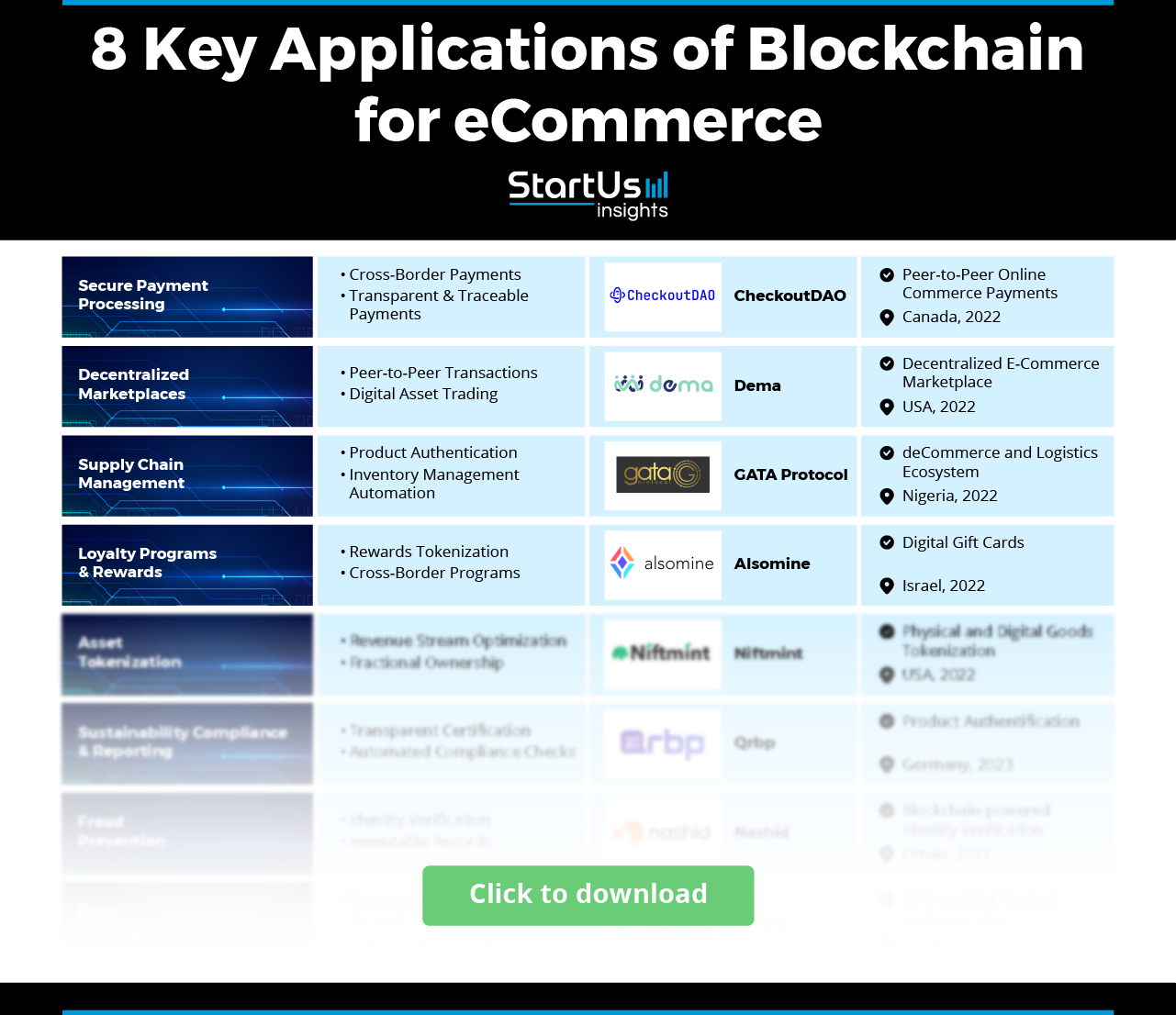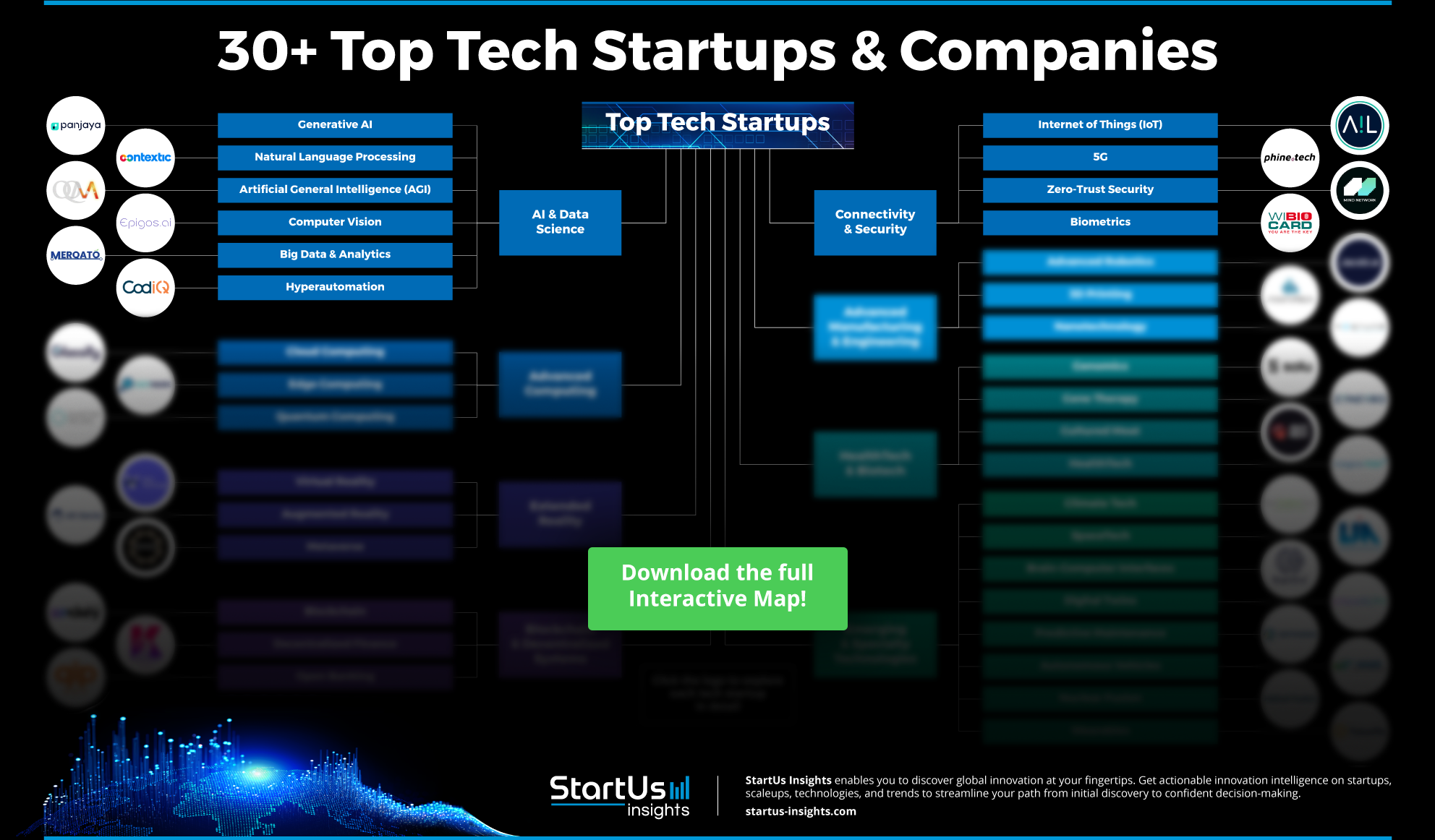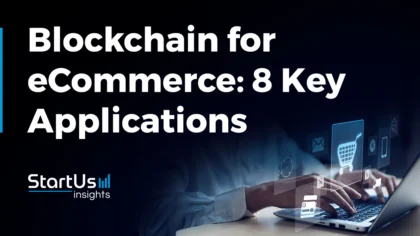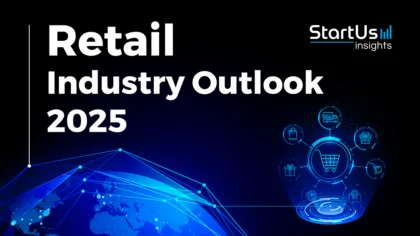Accelerate Productivity in 2025
Reignite Growth Despite the Global Slowdown
eCommerce businesses are using blockchain to secure and optimize their end-to-end operation because of its secure, immutable, transparent nature. From authenticating products from the supplier to ensuring timely and secure delivery to the customers, blockchain is doing it all. Further, blockchain is also securing the identities of the workers as well as the customers. Technologies like distributed ledgers store all confidential information in a tamper-proof manner. Smart contracts prevent fraud and reduce errors by automating transactions.
Another interesting application of blockchain is asset tokenization, where owners fragment the ownership of luxury or expensive products and make them available to a wider section of the population. The contribution of blockchain is set to increase in the ecommerce industry as it reaches more people around the world. The more ecommerce becomes accessible to people, the more there are chances of fraud and security breaches. By leveraging blockchain, e-commerce businesses are improving their current offerings and positioning themselves at the forefront of digital innovations.
Why should you read this report?
- Gain insights into the top 8 use cases of blockchain in e-commerce
- Learn about three practical use cases for each use case
- Meet 8 innovative startups advancing these applications

Key Takeaways
- Secure Payment Processing
- Use Cases:
- Cross-Border Payments
- Transparent & Traceable Payments
- Startup to Watch: CheckoutDAO
- Use Cases:
- Decentralized Marketplaces
- Use Cases:
- Peer-to-Peer Transactions
- Digital Asset Trading
- Startup to Watch: Dema
- Use Cases:
- Supply Chain Management
- Use Cases:
- Product Authentication
- Inventory Management Automation
- Startup to Watch: GATA Protocol
- Use Cases:
- Loyalty Programs and Rewards
- Use Cases:
- Rewards Tokenization
- Cross-Border Programs
- Startup to Watch: Alsomine
- Use Cases:
- Asset Tokenization
- Use Cases:
- Revenue Stream Optimization
- Fractional Ownership
- Startup to Watch: Niftmint
- Use Cases:
- Sustainability Compliance and Reporting
- Use Cases:
- Transparent Certification
- Automated Compliance Checks
- Startup to Watch: Qrbp
- Use Cases:
- Fraud Prevention
- Use Cases:
- Identity Verification
- Immutable Records
- Startup to Watch: Nashid
- Use Cases:
- Data Security
- Use Cases:
- Transparent & Auditable Records
- Cryptographic Security
- Startup to Watch: Uniqly
- Use Cases:
FAQs: Applications of Blockchain in eCommerce
1. How is blockchain useful to the ecommerce industry?
Blockchain brings significant benefits to ecommerce by enhancing transparency, security, and efficiency in transactions. It secures payment processes by encrypting data, reducing fraud risks, and protecting user privacy. Additionally, blockchain streamlines supply chain management, allowing companies to trace products at every stage, from manufacturing to delivery. This transparency reduces counterfeiting and strengthens consumer trust. Blockchain also supports loyalty programs, enabling customers to earn and redeem tokens across platforms, which improves engagement and brand loyalty.
2. What is the future of blockchain in the ecommerce industry?
The future of blockchain in ecommerce points to widespread adoption, with applications expanding beyond payments to include smart contracts and decentralized marketplaces. Smart contracts automate and enforce agreements without intermediaries, reducing costs and accelerating order fulfillment.
As blockchain platforms evolve, they improve cross-border transactions by reducing currency exchange fees and speeding up settlements. Moreover, the rise of decentralized marketplaces powered by blockchain eliminates the need for centralized platforms, offering sellers more autonomy and buyers enhanced security.
Where We Get Our Data From
StartUs Insights gathers data through its exhaustive Discovery Platform, covering information on 4.7+ million startups, scaleups, and tech companies globally, alongside 20K+ emerging technologies and trends. The Discovery Platform accelerates startup and technology scouting, trend intelligence, and patent searches, offering thorough insights into technological advancements.
By leveraging the trend intelligence feature for this report, we identified emerging technologies within specific industries. This process allows us to uncover patterns and trends, and pinpoint relevant use cases and the startups creating solutions for each scenario. Additional capabilities and information can be found at StartUs Insights Discovery Platform.
Top 10 Applications of Blockchain in eCommerce [2025 & Beyond]
1. Secure Payment Processing
Blockchain’s decentralized nature and immutable records improve the security and transparency of the transaction. Cryptocurrencies like Bitcoin and Ethereum are used in such decentralized peer-to-peer transactions. By eliminating intermediaries like payment gateways and banks, blockchain significantly lowers transaction feed for both merchants and customers.
Further, public and private keys like cryptographic keys secure and authenticate transactions. Technologies like distributed ledger technology (DLT) additionally maintain a decentralized database of transactions. Blockchain also enables secure near-instantaneous payment processing and settlement, especially beneficial for cross-border transactions that traditionally take days.
Dive Deeper:
- Noteworthy Example: PayPal has integrated blockchain technology into its payment services. They support the transfer of cryptocurrencies like Bitcoin, Bitcoin Cash, Ethereum, and Litecoin. PayPal allows checkout with crypto at millions of merchant locations. The platform doesn’t charge fees for transferring cryptocurrency onto or within the platform.
- Financial Landscape: The average funding for ecommerce startups working on blockchain-based payment processing is USD 50 million.
Startup to Watch: CheckoutDAO
Canadian startup CheckoutDAO offers a decentralized, peer-to-peer commerce protocol. It provides merchants with a customizable e-commerce checkout solution that gives them full control over their finances, customer experience, and operations. The protocol operates through a smart contract on the blockchain, which enables secure and transparent payments between buyers and sellers, using both FIAT and cryptocurrency. For each transaction, a fee is transferred to CheckoutDAO, and an equivalent value in tokens is awarded to the seller who facilitated the transaction.
2. Decentralized Marketplaces
Decentralized marketplaces enable peer-to-peer transactions across borders, making e-commerce more accessible to a global audience. Such marketplaces are scalable, more regulatory compliant, and secure. Blockchain-enabled self-executing contracts with terms directly written into codes are used in a decentralized marketplace.
These contracts automate transactions and enforce rules without intermediaries. Decentralized marketplaces also use distributed ledgers to create a decentralized database, which carries all important information and is available for everyone to view. Additionally, the payment methods for such marketplaces range from traditional payment methods to digital or virtual currencies.
Dive Deeper:
- Noteworthy Example: OpenBazaar’s peer-to-peer marketplace allows users to buy and sell goods and services directly using cryptocurrencies like Bitcoin. It operates without intermediaries, reducing fees and enhancing privacy. The platform promotes a decentralized economy, enabling more convenient global trade.
- Financial Landscape: The average funding for ecommerce startups using a decentralized marketplace is USD 26 million.
Startup to Watch: Dema
US-based startup Dema is a decentralized e-commerce marketplace platform that allows users to buy and sell from anywhere. The platform includes a buy-box feature for customers. This feature allows selection of products, low referral fees, a reduction in returns, marketplace ownership options, and tokens with utility.
For sellers, Dema automates order fulfillment by syncing inventory in real-time and seamlessly relaying orders to existing fulfillment workflows. For shoppers, Dema operates as a browser extension where users can sign up, add payment details and address information, and receive automatic alerts when items can be added to the cart. Orders are shipped directly from the seller with the same return policy consistently applied.
3. Supply Chain Management
Blockchain creates a decentralized and immutable ledger of all transactions and interactions within the supply chain. Technologies like smart contract and permissioned blockchain ensures the security of the ledger by allowing only authorized access. The denentralized ledger is used by multiple stakeholders for tracking products from their origin to the end consumer. This is crucial for verifying product authenticity, managing recalls efficiently, and ensuring ethical sourcing practices.
Blockchain-powered supply chain management ensures trust and accountability among all the stakeholders as all of them have equal access to the same verified information. By providing a single source of truth, blockchain eliminates data discrepancies and inconsistencies that can arise from using multiple systems across different locations.
Dive Deeper:
- Noteworthy Example: The announcement of the Walmart China Blockchain Traceability Platform came with the introduction of the first batch of 23 product lines that have been tested and launched on the platform. It is expected to scale by another 100 product lines including fresh meat products, rice, mushrooms, cooking oil, etc.
- Financial Landscape: The average funding for ecommerce startups using blockchain for supply chain management is USD 7.5 million.
Startup to Watch: GATA Protocol
Nigerian startup GATA Protocol is a community-owned decentralized ecommerce and logistics ecosystem designed to give users full control over buying, selling, and delivery processes. It is ideal for businesses of all sizes worldwide. The ecosystem features a platform that eliminates intermediaries to streamline sales and logistics. Through the GATA Network, members gain access to a community that drives the decentralized commerce and logistics ecosystem forward.
The GATAMARKET offers a decentralized marketplace where users exchange products and manage global supply chains at lower costs. GATANow, a next-generation decentralized logistics system, enables efficient, secure point-to-point deliveries. Further, transactions are supported by GATA Token, while GATA Membership NFTs provide exclusive benefits within the community.
4. Loyalty Programs and Rewards
Loyalty points can be tokenized on the blockchain, which allows easy transfer and redemption across multiple platforms. It also facilitates interoperability between different loyalty programs, which allows customers to earn and redeem rewards across a network of participating companies. Smart contracts are used to automate the issuance and redemption of rewards.
To maintain transparency and security in tracking and managing loyalty points, blockchain provides a decentralized and immutable ledger for storing customer points and rewards. Customers further use blockchain-powered digital wallets to store all reward points from various programs in one place. Blockchain ensures almost instant credit and redemption of loyalty programs, which further ensures efficiency and improves customer experience.
Dive Deeper:
- Noteworthy Example: Moso is a Web3 shopping assistant that rewards users with cryptocurrency for online shopping, allowing customers to earn crypto instead of traditional cash back. They offer a white-label shopping solution, integrating with over 2,000 merchants, and promoting engagement through the shopping experience.
- Financial Landscape: The average funding for ecommerce startups using blockchain-based loyalty programs and rewards is USD 31.6 million.
Startup to Watch: Alsomine
Israeli startup Alsomine is a gift card issuance platform and wallet that transforms the digital gift card industry through blockchain technology. It addresses challenges such as fraud, limited consumer data, revenue recognition, and breakage. This platform empowers processors, loyalty program managers, and merchants to improve their gift card programs by simplifying digital gift card issuance and management. The platform also ensures security, transparency, and reduced breakage for maximized card value. It is adaptable to different business models and offers revenue opportunities along with data-driven insights on consumer behavior to inform strategic decisions.
5. Asset Tokenization
Asset Tokenization fragments a single product into different ownerships, which allows more people to buy or sell the same product on ecommerce platforms. eCommerce businesses tokenize high-value assets like luxury goods, real estate, etc. to offer fractional ownership, This makes the high-value assets more accessible to a broader range of investors. Decentralized exchanges (DEXs) enable peer-to-peer trading of tokenized assets without any intermediaries. Digital wallets are used to securely store, manage, store, and trade these tokenized assets.
Tokenization also applies to loyalty programs and makes them more traceable and transferable. Additionally, digital properties like copyrights and trademarks, which are easily infringed on online platforms are protected using blockchain-based tokenization. E-commerce startups also use asset tokenization for raising capital through security token offerings (STOs).
Dive Deeper:
- Noteworthy Example: Overstock.com, a major e-commerce retailer, has been a pioneer in blockchain adoption. In 2020, they partnered with Tokensoft to facilitate the issuance of their digital security offering. This collaboration showcased the potential of tokenization for established e-commerce businesses to raise capital in innovative ways.
- Financial Landscape: The average funding for ecommerce startups using blockchain-based asset tokenization is USD 19 million.
Startup to Watch: Niftmint
US-based startup Niftmint provides tokenization APIs for creating secure, authentic, and programmable digital twins of physical and digital products. The products are coded by origin, which ensures secure, programmable key information. Niftmint eliminated the use of heavy tech and cryptographically manages all authenticated products. After authenticating the physical products, users sell or offer the authenticated products on the ecommerce store. This tokenization assists in boosting revenue by maintaining an easy-to-follow customer experience across all channels and providing rewards.

6. Sustainability Compliance and Reporting
By tracking products throughout their lifecycle, blockchain verifies the authenticity and sustainability of materials used. For example, it ensures that ESG data, such as carbon emissions and resource usage, is transparent and cannot be altered once recorded.These steps prevent greenwashing by allowing companies to provide verifiable evidence of their environmental impact and ethical sourcing practices.
Blockchain solutions also ensure carbon credit trading, which allows e-commerce companies to track and offset their carbon footprint more efficiently.Further, smart contracts are used to automate sustainability agreements and processes and enforce legal actions when the targets are missed or not followed.
Dive Deeper:
- Noteworthy Example: Venly, a leading Web3 platform makes blockchain accessible and easy to integrate for developers and businesses alike. With its APIs and SDKs, Venly simplifies the process of adopting blockchain for apps, games, platforms, and brands, facilitating seamless user onboarding and efficient digital asset management.
- Financial Landscape: The average funding for ecommerce startups using blockchain for sustainability compliance and regulation is USD 40.1 million.
Startup to Watch: Qrbp
German startup Qrbp provides web3 certification for product authentication to address the counterfeiting issue. The company provides an immutable and transparent product authentication certificate using dynamic QR codes. It also provides a marketplace for such products. Each product contains a unique NFT, which contains metadata specified by the manufacturer.
Manufacturers use Qrbp tokens to pay fees for the QR and NFT generation. The marketplace contains all the authenticated products, where customers scan the QR code to verify the product’s authenticity and buy it. It provides in-depth analytics and a seamless user experience for manufacturers.
7. Fraud Prevention
Blockchain improves transparency and security in ecommerce operations by enabling decentralized ledger technology (DLT), which provides a decentralized and immutable record of all transactions. DLT is useful in financial transactions as it detects and prevents unauthorized or fraudulent payments. eCommerce businesses also use blockchain to track products from manufacturers till delivery, which ensures authenticity and reduces counterfeit goods.
Further, blockchain-based systems securely store and verify customer information. Blockchain’s decentralized nature makes it difficult for hackers to manipulate or steal sensitive customer data, which reduces the risk of account takeover and identity theft. Blockchain also prevents fake or manipulated reviews by verifying the authenticity of product reviews and linking them to verified purchases.
Dive Deeper:
- Noteworthy Example: Fraud prevention platform Trustpair announced the integration of investment bank JPMorgan’s blockchain-based solution Confirm to verify bank account information.
- Financial Landscape: The average funding for ecommerce startups using blockchain-based fraud detection is USD 24.9 million.
Startup to Watch: Nashid
Oman-based startup Nashid provides a blockchain-powered platform for verifying customer credentials in real-time. Nashid Verify optimizes the onboarding and identity verification process using technologies like AI, NFC, and OCR. The technologies enable NFC chip reading, facial matching, and liveness checks to provide a reliable identification process.
Nashid Platform is a blockchain-powered digital identity wallet for secure credential issuance, credential verification, and integrated management system. The products are scalable and are used by global businesses as it is suitable for cross-border verification. It improved security, customer loyalty, and better conversion rates with features like secure checkout and customer data management.
8. Data Security
Blockchain’s cryptographic nature provides a higher level of security than conventional methods by creating tamper-proof records of every transaction and data point. Blockchain ensures that once data is recorded, it becomes permanent and resistant to modification, maintaining data integrity. As blockchain enables a decentralized platform and eliminates a single point of failure, it becomes challenging for hackers to breach the entire system.
eCommerce companies use these features to ensure secure payment, customer data protection, supply chain security, secure data storage, and more. Further, cryptographic signatures verifies data, while decentralized identity management verifies customer identity, and tokenization safeguards intellectual data
Dive Deeper:
- Noteworthy Example: Starbucks is using blockchain to trace the journey of their coffee beans, which ensures ethical sourcing and quality control. This implementation secures data related to product origin and quality.
- Financial Landscape: The average funding for ecommerce startups using blockchain-based data security is USD 21.5 million.
Startup to Watch: Uniqly
Polish startup Uniqly offers customized NFC tags that attach to physical products and create a digital twin through blockchain technology. These tags can be integrated into any item of clothing, allowing brands to track each product’s unique digital footprint as an NFT.
This technology improves brand sales and customer experience by providing a new digital layer of interaction. It is compliant with upcoming EU regulations and comes with loyalty-building tools, an e-commerce module, NFC labels, and secure web3 and proof of authority (POA). Additionally, the NFC tags provide exclusive updates for the NFT owners along with personalized product recommendations.
Leverage Emerging VR-led eCommerce Innovations
Investment in blockchain technology for eCommerce remains robust, with seed, early-stage VC/Series A, pre-seed, angel, and venture rounds as primary funding types, averaging USD 25.9 million per round. Leading investors, including Outlier Ventures, Global Emerging Markets, Rarestone Capitals, and Animoca Brands, prioritize funding in digital security, blockchain, and immersive shopping experiences.
Act now on the emerging technologies transforming the ecommerce industry. With StartUs Insights, you swiftly discover hidden gems among over 4.7 million startups, scaleups, and tech companies, supported by 20K+ trends and technologies. Our AI-powered search and real-time database ensure exclusive access to innovative solutions, making the global innovation landscape easy to navigate.
Trusted by industry leaders like Samsung, Nestlé, and Magna, we provide unmatched data, a 360-degree industry view, and data-driven intelligence for confident strategic decisions. Leverage our innovation services to optimize costs, streamline operations, and stay ahead of the curve. Get in touch today to explore how our comprehensive innovation intelligence can drive your success.
Discover All Blockchain-led eCommerce Technologies & Startups!


![AI in Retail: A Strategic Guide for Industry Leaders [2025-2030]](https://www.startus-insights.com/wp-content/uploads/2025/04/AI-in-Retail-SharedImg-StartUs-Insights-noresize-420x236.webp)




